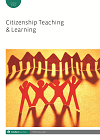
Full text loading...
 , Bulent Tarman2
, Bulent Tarman2
One of the main roles of schooling is equipping students with civic values and preparing them for participation in democratic societies. However, what should be taught and what kind of citizenship should be promoted are core issues in civic education, especially in the time of globalization. As several researchers stated, what kind of citizens we want to nurture and what kind of school curricula will best promote it are contentious topics among educators and policy-makers. The purpose of this article is to examine the influence of speaking a foreign language, social media use and types of citizenship on global competence. The correlational survey model was applied for the study. The participants were selected through cluster random sampling during the 2018–19 academic year. This study was implemented with 425 high-school students in Turkey. The author used the Global Citizenship Scale and ‘What Kind of Citizen’ survey. The findings showed that the number of social networks that participants engaged in was positively related to global competence. A positive attitude towards participatory citizenship was also associated with global competence. Multiple regression was conducted to determine the best linear combination of speaking a foreign language, social media use, and attitude towards participatory citizenship for predicting global competence. Test results showed that the combination of these variables significantly predicted global competence.

Article metrics loading...

Full text loading...
References


Data & Media loading...

Publication Date:
https://doi.org/10.1386/ctl_00081_1 Published content will be available immediately after check-out or when it is released in case of a pre-order. Please make sure to be logged in to see all available purchase options.